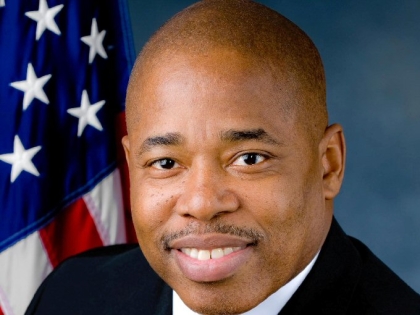
Senator Adams and Colleagues Pass Strong Ethics Reform Legislation
Eric Adams
January 20, 2010
NYS SENATOR ERIC ADAMS AND HIS COLLEAGUES IN THE NEW YORK STATE SENATE PASS STRONG ETHICS REFORM LEGISLATION
NYS Senator Eric Adams states: “These 2 bills represent the most complete ethics reform seen in Albany in decades and are an initial step in mandating accountability for public officials. They are designed to restore the confidence of the public in its state government. They impose meaningful ethics oversight and enforcement, increase transparency and disclosure, and tighten campaign finance rules. No longer will a public officer be able to use government resources for personal business interests. When Governor Paterson signs these bills into law, our state government will be more open and accountable. ”
The New York State Senate took a significant step today towards ending corruption and dysfunction in Albany by passing S6457, an ethics reform bill that raises disclosure requirements and accountability for elected officials and sounds the death knell for an era of secrecy.
The legislation marks the first time both houses of the Legislature have passed ethics reform of this magnitude. It requires greater disclosure of legislators’ outside sources of income, improves reporting requirements on the activity of lobbyists who have business relationships with public officials, re-establishes an independent lobbying commission, and authorizes a bipartisan enforcement unit in the New York State Board of Elections to impose strict adherence to campaign finance laws. The enhanced disclosure requirements will take effect January 1, 2011. The bill was passed with overwhelming bipartisan support, 59-1.
A second bill completed today’s ethics reform package, passing 60-0. Amending both civil and criminal law to eliminate a defect in state ethics law, the legislation imposes a ban under the Code of Ethics to prohibit public officers from using government resources for outside, for-profit business and specifically defines any "ongoing scheme" to use government resources for outside, for-profit business as defrauding the government, a felony.
A new Legislative Ethics Commission will have both a compliance branch and an investigative branch, and the Commission on Public Integrity will be replaced by a new six-member board to oversee ethics compliance in the executive branch. Both commissions will commence their oversight on July 31, 2010 and sunset on July 31, 2014. (Current law governing judiciary ethics will remain unchanged.)
###
Share this Article or Press Release
Newsroom
Go to Newsroom
SUN-B Senior Care Meeting
August 27, 2013
Senator Adams joins Sunset Park Chinese Leaders
August 27, 2013